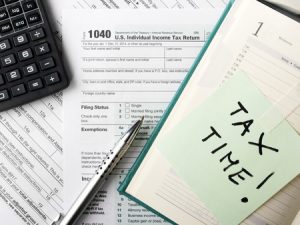
Incentive programs are an extremely effective tool for businesses to use to motivate employees, show appreciation for their work, and subsequently increase productivity and overall profit. They can, however, be a little confusing when tax season rolls around if it’s your first time using them.
As one of the leading companies in the incentive travel industry, our goal is to provide our clients with the resources they need to successfully implement an incentive program for their company.
So, what do you need to know about taxation on employee incentive programs?
Generally, incentives are included in an employee’s annual income.
When it comes to cash bonuses and prizes, the full value of the award will be added to the recipient’s total income. Non-cash prizes, such as merchandise and travel, are taxed at their fair market value. For travel, this value varies based on many factors.
Typically, you can expect the fair market value of an incentive trip to come out to about 75% of the total cost to the employer. This means that something like an incentive travel program for example, would offer a greater tax advantage than a cash bonus.
What this means for employees:
For employees who receive incentives other than outright cash payments or gift cards, the fair market value will be reported on their W2s by their employers. This additional income is subject to both federal and state taxes.
An incentive or reward must be declared the year in which they are received. So, if you win a trip to Hawaii at the end of 2019 to be taken in 2020, it should be reported in your 2020 income.
What this means for employers:
Businesses that offer and reward incentives to employees can write off a portion of the value as a business expense or marketing cost and receive a tax reduction on that amount.
For single achievement awards, such as a one-time prize for being the first to meet a sales goal, employers may deduct up to $400 per recipient in a single tax year. For established, ongoing incentive programs, that limit increases to a deduction of up to $1,600 per recipient. If the cost per person goes beyond that amount, still only the first $1,600 per recipient may be deducted while the rest remains at the expense of the employer.
If you’re looking to implement an incentive travel program that elevates your profits, inspires your employees, and offers you the best value for the lowest cost, you need a professional to show you the ropes. That’s where we come in.
At HPM Associates, you’ll tell us exactly what your goals are and what your company needs. Then, our experts will make it happen. Reach out to our professionals online or at 305-274-0030 to get all the information and assistance you need to make your incentive program work for you!
